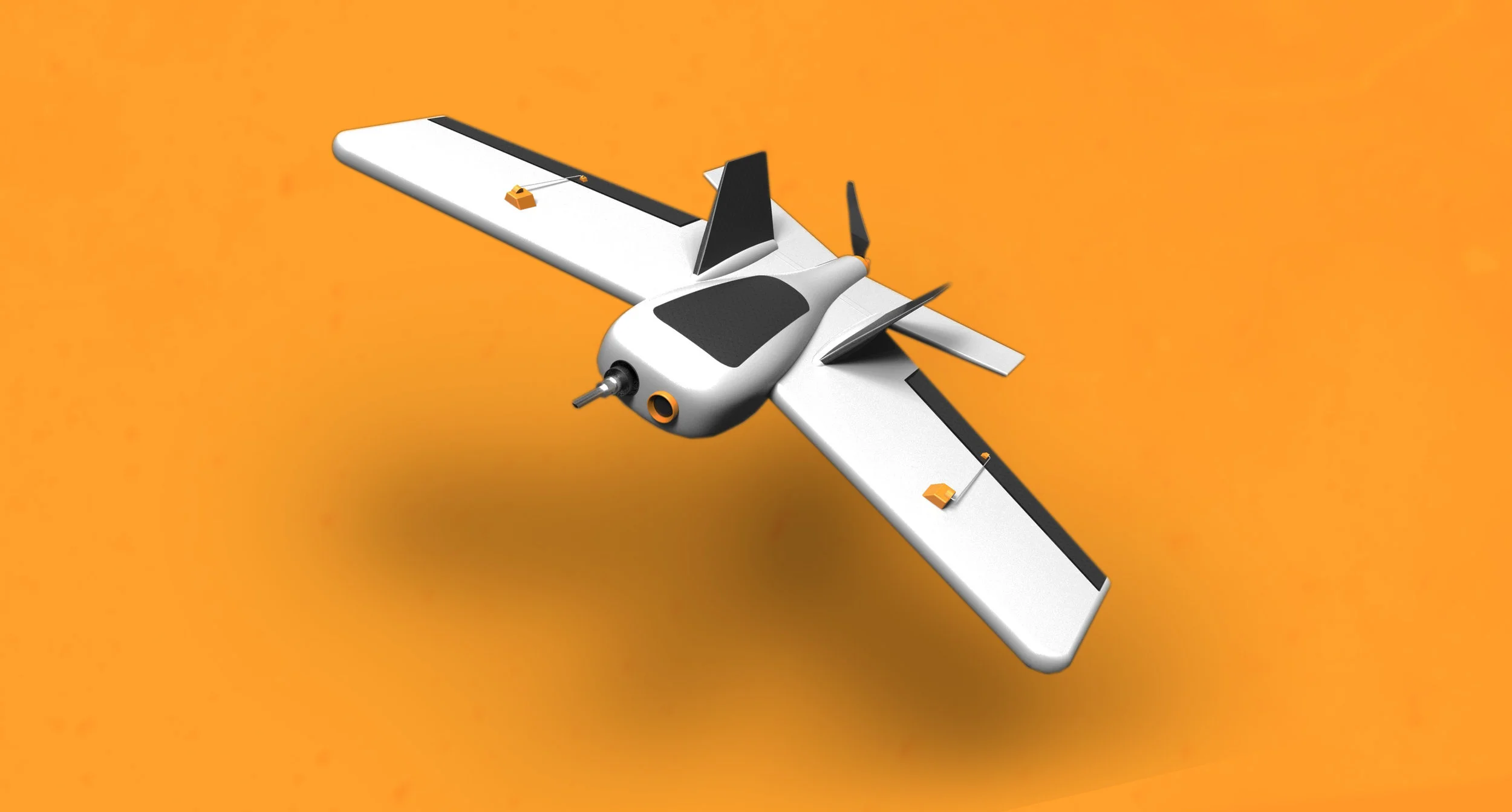wasp is a small, fixed-wing drone designed to tranquilize animals remotely. it eliminates the need for helicopter darting, as well as the cost and risk that comes with it.
The development of Wasp was sponsored by the Smithsonian Conservation Biology Institute to enable field biologists to remotely tranquilize animals for research and GPS collaring.
Interviews with industry professionals and extensive research exposed the huge risks involved in tranquilizing endangered species.
helicopter darting
a skilled bush pilot flies his Robinson-22 helicopter just meters off the ground, while a trained veterinarian leans out of the aircraft aiming a high-powered dart gun.
deadly crashes are frequent.
missed shots are expected. lost darts must be retrieved.
helicopter time costs SCBI $900+ for every hour of flight, in addition to ground personnel.
problem definition
this begs the question,
“how might we reduce the risk, inaccuracy,
and cost of helicopter darting with a drone system?”
ideation
our design process rethought how the tranquilizer drug is delivered.
what if the drone became the dart?
a small, fixed-wing drone could be piloted to “sting” the target, like a wasp.
with wasp, the tranquilizer drug is delivered on impact.
no rifles. no helicopters. no accidents. no deaths.
wasp system
an inexpensive racing drone is modified to hold the industry-standard tranquilizer dart inside the fuselage.
the total cost is $80 per drone.
a custom mechanism is installed to spring-load the dart safely inside the drone.
flight process
the dart is breechloaded to avoid human contact with the needle.
wasp is launched by hand.
a trained pilot guides wasp to its target with f.p.v. goggles.
when impact is certain, the pilot triggers the dart mechanism and the needle is exposed to administer the drug.
this short animation explains how the dart mechanism functions.
wasp’s benefits
no more aviation accidents or deaths.
quieter, less stressful for the animal.
$80 unit cost slashes mission expenses.
fuselage is reusable, yet expendable.






















